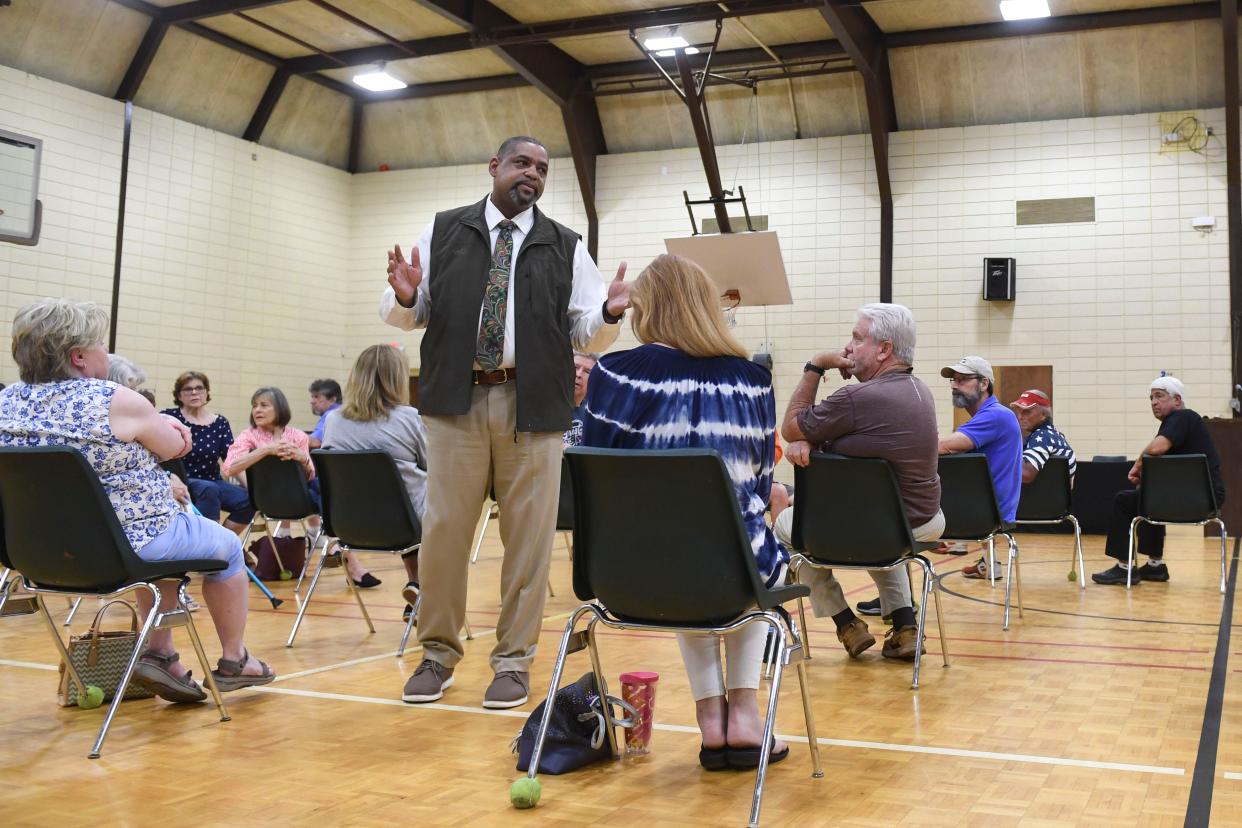What law enforcement can and can't do to remove unwanted people from private property

Augusta officials in recent weeks have heard from residents and business owners about challenges regarding when and how someone can be removed from private property.
A delegation of local hotel owners recently spoke to the Augusta Commission to ask for assistance.
"Our members are facing a situation where guests are overstaying in their rooms, not paying and refusing to leave," Laura Lee Blake, president and CEO at Asian American Hotel Owners Association, told commissioners. "They call law enforcement and right now there's confusion over the complexities between a hotel innkeeper versus an apartment landlord."
Richmond County Sheriff Richard Roundtree this month held a public town hall to outline a new Property Owner Response Team, a public-private collaboration that would let business owners authorize deputies to remove encampments on their properties. A commissioner last week said 19 business owners had signed the contract.
But any removal of someone off private property has to follow a legal process and Georgia has several, according to associate professor Elizabeth M. Grant, director of the Public Interest Practicum at the University of Georgia law school.
More: Partnership with property owners key to halting crime by the homeless, says sheriff
Multiple ways to remove people
Blake noted a recent ruling by the Georgia State Supreme Court, Efficiency Lodge, Inc. v. Neason et al., where several residents of a long-term stay hotel sued when management attempted to evict them without filing a formal eviction claim in court. The ruling determined that under some circumstances a resident at a hotel could be considered a tenant, but returned the ruling to the lower court to determine whether or not that applied in this specific case.
"What's been clarified in the law by the Supreme Court is it leaves open the possibility that people renting for a extended period of time at extended stay in motels could kind of transition from being guests ... to becoming tenants and having the rights of tenants," Grant said.
That being said, law enforcement may be hesitant to get involved in what is essentially a breach of a private contract, whether as a guest at a hotel or a tenant, without a court order, such as an eviction notice, or a clear criminal violation. If law enforcement are unsure, they may leave it up to a civil court, Grant said.
If property owners want to remove someone from their properties in Georgia, that falls under one of four possible proceedings, said Grant. Those include:
Innkeeper lockout: Someone who is a guest at a hotel and is not a tenant, can be legally locked out if they breach the contract or overstay; an option not available to landlords renting to tenants.
Eviction: A tenant who has breached the rental contract can be evicted by the property owner through a civil court dispossessory proceeding.
Ejection: Someone who is occupying private property without any authorization or contract, like someone camping or moving into an unoccupied building, can be ejected through a separate civil process.
Criminal trespass: If someone comes onto the property without authorization and the property owner asks them to leave and they refuse, or they are warned not to return; in which case law enforcement can act to remove the person.
What rights do the people being removed have?
When it comes to the PORT contracts, Grant said she had not seen such a contract previously and was not sure where the authority to remove people might come under the law. The Richmond County Attorney's office could not immediately be reached for comment on the issue.
In an eviction proceeding, tenants getting evicted have seven days to respond upon receiving notice. If the tenant does respond, they are supposed to get a hearing within another seven days. If a judge agrees to the eviction, the tenant has seven days to appeal.
As for someone camping on private property who has their property removed or taken by deputies, Grant said it would depend on the case. If someone has been living on the property for some time with the explicit or implicit understanding of the property owner, they may be able to claim a legal eviction process. In most cases, if their belongings are removed off the property it is no longer the legal responsibility of the property owner.
This article originally appeared on Augusta Chronicle: How removing people from private property works in Georgia

